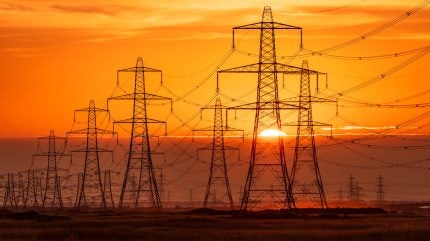
The energy dynamics in the Mediterranean region are undergoing a transformation, with a focus on the region’s renewables potential to redefine Europe’s energy landscape and reduce reliance on Russian fossil fuels.
The briefing was reported in a joint publication from Third Generation Environmentalism (E3G) and ECCO.

Discover B2B Marketing That Performs
Combine business intelligence and editorial excellence to reach engaged professionals across 36 leading media platforms.
The European Union’s (EU) forthcoming strategies, which include the New Pact for the Mediterranean and the Trans-Mediterranean Energy and Clean Tech Cooperation Initiative, are set to outline the future of this transition.
The EU’s new Pact for the Mediterranean is expected by late 2025, and the Trans-Mediterranean Energy and Clean Tech Cooperation Initiative are planned for early next year.
These strategies are critical in ensuring a well-managed shift towards clean energy, which is expected to enhance industrial competitiveness, energy security, and climate resilience while creating jobs and stabilising the region.
The gas crisis from 2021 to 2023 highlighted the dangers of volatile gas prices and underscored the importance of diversifying energy sources.

US Tariffs are shifting - will you react or anticipate?
Don’t let policy changes catch you off guard. Stay proactive with real-time data and expert analysis.
By GlobalDataStrengthened energy ties between the EU and Mediterranean countries could yield numerous benefits, including a more secure energy supply and lucrative export opportunities.
Electricity interconnectors could enhance regional energy security, while the growth of clean energy industries could create jobs and establish new trans-Mediterranean supply chains.
As the EU’s demand for fossil fuels decreases, fostering clean energy partnerships is vital for maintaining regional stability, especially as fossil fuel-producing nations face reduced demand from the region.
The Mediterranean Alliance of Think Tanks on Climate Change and other experts from civil society and industry in Europe and the MENA region outline recommendations for the EU’s strategic refresh.
The recommendations include incorporating a just energy transition as a core principle, supporting a Mediterranean-wide renewable energy target such as the TeraMed goal of 1TW by 2030, and promoting energy interconnectedness for enhanced security.
Additionally, the deployment of renewables should bolster industrial growth and local value creation in Southern Mediterranean countries, and the EU must leverage its financial resources to support the energy transition.
The EU should adopt a Pan-Mediterranean vision that strengthens bilateral partnerships and fosters a broader multilateral approach to maximise regional benefits, recommended the alliance.
This includes co-creating the new pact with stakeholders from partner countries, reinforcing South-South cooperation, and exploring trilateral cooperation with regional actors.
Climate considerations must be central to the EU’s strategy, recognising their importance for long-term security, stability, and development, and drawing on the successes of the EU Green Deal and the emerging Clean Industrial Deal, added the alliance.





